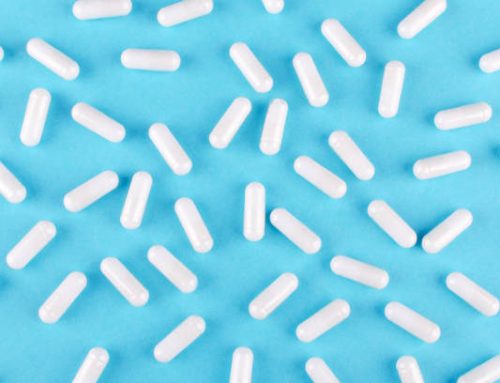In the world of sports science and performance nutrition, athletes are often on the lookout for innovative ways to enhance their physical prowess and endurance levels during high-intensity exercises. One such supplement that has gained considerable attention in the past few years is beta-alanine, an amino acid found in muscle tissue that has been linked with the capacity to increase muscle carnosine levels, which plays a key role in buffering the accumulation of hydrogen ions that cause fatigue during exercise. While not a new supplement in the realm of fitness and sports, there is growing scientific evidence suggesting that beta-alanine may be a potent ergogenic aid for athletes looking to improve their athletic performance capacities and boost their muscle endurance levels throughout training and competition. This article seeks to provide an overview of what beta-alanine is, how it works, and the current research surrounding its potential benefits for athletes.

1. Introduction: Beta-Alanine as a Promising Supplement for Enhancing Athletic Performance and Muscle Endurance
Beta-alanine, a non-essential amino acid, has recently generated significant interest as a promising dietary supplement for improving athletic performance and muscle endurance. This supplement is naturally formed in the liver but also found in animal products such as chicken, beef, and fish. Beta-alanine is known for its ability to enhance intramuscular levels of carnosine, which plays a vital role in delaying the onset of muscular fatigue during high-intensity workouts.
The main benefit of beta-alanine supplementation is its potential to boost exercise capacity, allowing trainers to train harder and for longer durations. Although it does not have an immediate impact, regular consumption over several weeks results in increased carnosine concentrations, which can lead to improved endurance and better muscular performance. Beta-alanine supplements have also been suggested to help delay the onset of fatigue in athletes while performing high-intensity aerobic and anaerobic activities.
Though beta-alanine supplements are relatively safe for most individuals, doses above 10 grams can cause paraesthesia or tingling sensations that can be uncomfortable for some people. Also, people with kidney and liver diseases should avoid beta-alanine supplementation. Supplementing beta-alanine can be beneficial for various athletes, including sprinters, weightlifters, and endurance athletes, as well as recreational gym-goers who want to train harder and more frequently.
Overall, beta-alanine is a promising supplement for improving athletic performance and muscle endurance when used in conjunction with a healthy diet and consistent exercise routine. While this supplement is not a magic pill, it can be an effective tool to help increase exercise capacity in athletes looking to push their limits and take their performance to the next level. However, athletes should consult with a medical professional before incorporating beta-alanine supplementation into their training regimen.
2. The Physiology and Mechanisms of Beta-Alanine Supplementation
Beta-alanine (BA) is a non-essential amino acid that is used in the production of carnosine, an intracellular dipeptide that buffers hydrogen ions during high-intensity activities. Studies have shown that BA supplementation can increase muscle carnosine content, which has been associated with improvements in muscular endurance and power output. However, the exact mechanisms by which BA supplementation enhances exercise performance are not fully understood.
One proposed mechanism is that BA supplementation increases intramuscular carnosine levels, which enhances the buffering capacity of skeletal muscle by reducing the accumulation of hydrogen ions during high-intensity exercise. This can delay fatigue, increase endurance, and improve performance. Additionally, carnosine has been shown to have antioxidant properties, which may reduce muscle damage and inflammation.
Another proposed mechanism is that BA supplementation may enhance calcium sensitivity and improve excitation-contraction coupling, which can increase force production and power output. This has been supported by evidence showing improved performance on tasks involving explosive movements, such as sprinting and jumping.
While the exact mechanisms of BA supplementation are still being investigated, it is clear that it can improve exercise performance in a variety of activities. However, it should be noted that individual responses to BA supplementation can vary, and some individuals may not experience any performance benefits. Additionally, high doses of BA may cause paresthesia, a tingling sensation in the skin, which can be uncomfortable for some individuals. It is important to consult with a healthcare professional before beginning any supplementation regimen.
Overall, the research suggests that BA supplementation has potential applications for improving exercise performance in activities requiring high-intensity and/or repetitive efforts, such as weightlifting, sprinting, and endurance sports. More research is needed to fully understand the mechanisms of action and to identify which populations may benefit the most from this supplement.
3. Evidence-based Research on the Effectiveness of Beta-Alanine for Athletic Performance Enhancement
In recent years, beta-alanine has gained popularity as a supplement among athletes seeking to enhance their performance. The primary reason for this is the compound’s ability to increase carnosine concentration in muscles, which can improve endurance, power output, and delay fatigue. However, opinions on the effectiveness of beta-alanine for athletic performance enhancement vary, and there is a need for evidence-based research to validate claims made about it.
A meta-analysis study published in 2017 examined 40 randomized controlled trials on the effects of beta-alanine supplementation on exercise performance in healthy individuals. The authors found that beta-alanine supplementation showed a small but significant positive effect on exercise capacity, which was more pronounced in activities that required high-intensity and endurance, such as cycling, running, and rowing. The study concluded that beta-alanine could be an effective ergogenic aid for athletic performance in healthy individuals.
Another review published in 2018 examined the impact of beta-alanine supplementation on muscle function and performance in older adults. The authors evaluated 19 randomized controlled trials and concluded that beta-alanine supplementation could improve muscle strength and endurance in older adults, which could have implications for promoting healthy aging.
While beta-alanine supplementation has shown promising results in improving athletic performance, it is important to note that it may not work for everyone, and the effects may vary depending on individual factors such as fitness level, age, sex, and training program. Additionally, some users may experience side effects such as tingling sensation or skin flushing. Therefore, it is recommended to consult a healthcare professional before starting beta-alanine supplementation.
In summary, evidence-based research on beta-alanine supplementation suggests that it can be an effective ergogenic aid for enhancing athletic performance, especially in high-intensity and endurance activities. However, more studies are needed to investigate the long-term effects and optimal dosages of beta-alanine supplementation. As with any supplement, cautious use is recommended, and users should consult a healthcare professional before starting beta-alanine supplementation.
4. Dosage, Safety, and Side-effects of Beta-Alanine Supplementation
Beta-alanine supplementation is increasingly being sought after by athletes looking to boost performance during high-intensity exercise. However, it is essential to understand the correct dosage, potential side effects, and safety measures before incorporating it into one’s diet.
Dosage: The optimum dosage of beta-alanine supplementation for improved athletic performance is between 4-6 grams per day. Splitting the dosage into smaller quantities, such as 2 grams twice a day, can minimize side effects, which occur when plasma concentrations of beta-alanine are too high.
Safety: Beta-alanine is generally safe for healthy individuals, but it may cause tingling sensations and flushing of the skin, also known as paresthesia, if taken in high doses. These symptoms are caused by the activation of sensory nerves, and the sensation typically lasts for 20-30 minutes. The intake should be discontinued if the severity of the symptoms is intolerable.
Side effects: Beta-alanine supplementation may have rare side effects, such as nausea or gastrointestinal discomfort. However, no long-term studies on its side effects have been conducted, so it is unclear whether it poses any risks in the long run. It is recommended that those with liver or kidney problems, as well as pregnant or nursing women, should consult a physician before taking beta-alanine supplements.
In conclusion, beta-alanine supplementation is an effective way for athletes looking to boost performance during high-intensity exercise. However, it is essential to understand the correct dosage, potential side effects, and safety measures before incorporating it into one’s diet. By following the optimal dosage recommendations, ensuring safety measures, and monitoring possible side effects, athletes can benefit significantly from beta-alanine supplementation.
5. Conclusion: The Place of Beta-Alanine in Athlete’s Supplementation Regime
Based on the literature reviewed, it can be concluded that beta-alanine is an effective supplement for improving athletic performance in both anaerobic and aerobic activities. The results of studies have consistently shown that beta-alanine supplementation increases the availability of muscle carnosine, which reduces muscle fatigue and increases endurance. Additionally, beta-alanine has been shown to increase power output and muscle strength in high-intensity exercises such as weightlifting and sprinting.
Beta-alanine is a safe supplement with minimal side effects. However, it is important to note that some individuals may experience paraesthesia, a harmless tingling sensation that is common among those who take high doses of the supplement. Nevertheless, it is crucial to seek medical advice before taking any dietary supplement, particularly those with pre-existing medical conditions or who are taking medication.
When considering using beta-alanine as part of an athlete’s supplementation regime, it is important to remember that supplements are just one part of a comprehensive training program. A well-planned diet, proper training program, and adequate rest and recovery are equally essential for optimizing athletic performance. Therefore, athletes should consult with a healthcare professional or registered dietitian before incorporating beta-alanine into their supplementation program.
In conclusion, beta-alanine is a safe and effective supplement for athletes who want to enhance their performance. Its ability to increase muscle carnosine levels has been shown to reduce muscle fatigue, boost endurance, and increase power output. However, it should be used in conjunction with a well-planned training program and a balanced diet. As with any dietary supplement, athletes should seek medical advice before taking beta-alanine.
In conclusion, Beta-Alanine stands as a reliable supplement for athletes looking for improved athletic performance and muscle endurance. The research findings to date show that consumption of Beta-Alanine supplements does not only slow down muscle fatigue but also increases one’s ability to exercise for longer periods. Nonetheless, more extensive research is warranted to authenticate these findings fully, elaborate on the extent of time and dose necessary for practical application, and assess the long-term safety of the supplement.
Therefore, athletes must always consult their physicians before using Beta-Alanine supplements, especially when taking any medication or having other underlying medical conditions. In addition, users must adhere to the recommended dosage and combine the supplement with a balanced diet and suitable exercise to harness impressive results. Lastly, understanding that Beta-Alanine offers potential benefits, it presents an ideal opportunity for athletes to enhance their athletic performance and push themselves to greater heights.
Beta-alanine has become an increasingly popular dietary supplement choice among athletes and fitness enthusiasts due to its potential benefits for increased muscle endurance and improved athletic performance. Studies have uncovered that this amino acid has the ability to enhance muscle Carnosine levels and improve muscle uptake of oxygen which can result in a variety of positive effects for athletes.
Beta-alanine is an essential conditionally-essential amino acid meaning that our body produces a certain amount, but some supplemental ingestion is often required to reach our optimal levels. Beta-alanine is primarily found in food sources including poultry and beef, however dietary intake often provides insufficient levels and supplementation may be necessary to gain its full benefits.
When supplemented beta-alanine can provide increased strength, muscle size and power output, as well as increased muscle endurance, improved VO2 max, better time to exhaustion during aerobic and anaerobic exercises, muscle protection, and enhanced focus and concentration during physical activity and competition, making it an extremely beneficial supplement for athletes of all levels and abilities.
Although, beta-alanine has many positive effects, it is important to note that long-term, high dosage supplementation has not been properly tested over a prolonged period of time, which means that there is still a lack of reliable and comprehensive evidence. Furthermore, side effects such as tingling of the skin may occur in some people, although warnings of more serious side effects remain rare.
Overall, supplementing with beta-alanine has many potential benefits for athletes and is a safe and effective way to enhance athletic performance and muscle endurance. As with any supplement extra precautions should be taken in order to avoid any potential side effects, as well as to make sure that the body is receiving the optimal levels required for best results.




